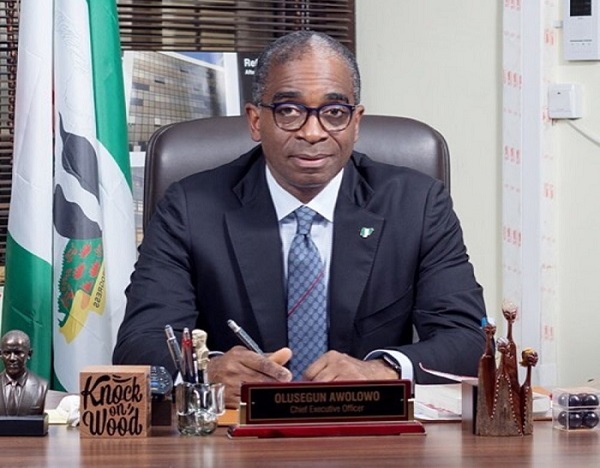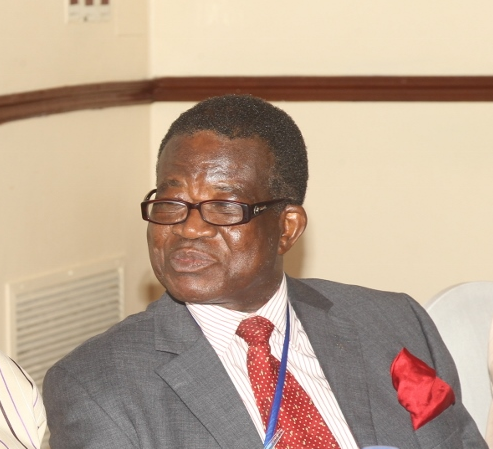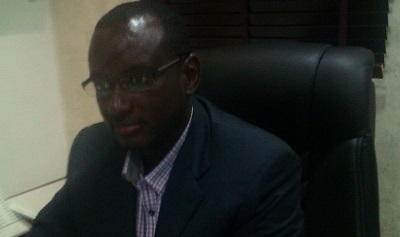AfCFTA: The Nigeria’s Dilemma

With a market of over 1.4 billion people and a combined Gross Domestic Product (GDP) of over $4trillion,Africa is a veritable market for business which is the main reason the African Continental Free Trade Agreement(AfCFTA) was birthed especially against the background that the apathy for trading among African countries is awfully high with less than 10 per cent ratio.
This accounts for low industrialization in Africa with the flipside being that African nations are majorly import dependent. But it appears the expectations and value proposition for AfCFTA may be far from being fully realized even in the long term.
There are too many hurdles to cross, including human factor hence the recent lecture by the Maritime Reporters Association of Nigeria(MARAN) with the theme,” AfCFTA: Dismantling Barriers,Navigating Regional Trade’ which took place in Lagos. As always, in many functions, representatives of AfCFTA were not present in a discourse session of this kind intended to shape their activities.
Moreover, findings have shown that Nigeria seems to be operating on the fringe in AfCFTA, a situation that impairs many plans in the body. With a market of over 200 million people and estimated GDP of $200billion, Nigeria should be a critical stakeholder in AfCFTA.
The Executive Secretary of the Nigerian Shippers’ Council(NSC) succinctly captured the nation’s dilemma in AfCFTA in an exclusive interview with MMS Plus thus:” We are looking into the issue of African Continent Free Trade Agreement (AfCFTA). Nigeria came late into that agreement although we were part of the negotiations and when it was time to sign we reneged. By the time we were advised to sign and we assented to it, all that would have been open for us to compete had been taken away, the job opportunities, the secretariat had gone, the office of the secretary general had gone. Everything was gone, so we came into the open market of over a billion people with a combined GDP of over $4 trillion
“Now what do we do? Do we sit down and fold our arms and allow the rest of Africa flood our markets with their goods? We have to do something. Now we are looking at the issue of maritime logistics as one of the major areas of the failure of that agreement’s implementation. As a council, we are looking at what to do to make Nigeria a hub for maritime logistics. You might think that we are day dreaming.
“Some other persons have even said that Nigeria is disadvantaged and they have already mapped trade routes. How do you recreate the trade routes to make Nigeria a hub? But we believe that at the moment 99 percent chances are that goods moving from country to another African country will first of move to Europe before coming to Africa. So connectivity problem is a big issue, Akutah added.
Dr Anthony Onoharigho, Deputy Registrar, Liberian Maritime Authority, described transportation and logistics as key sectors that will help the country achieve the AfCFTA objectives.
Onoharigho said this at the second edition of the Martime Reporters’ Association of Nigeria (MARAN) Annual Maritime Lecture(MAMAL).
The lecture had the theme: ‘AfCFTA – Dismantling Barriers, Navigating Regional Trade’.
According to him,`The transport sector is undermined. To move goods within the country is a problem and now thinking about Africa, so we need to make things seamless by removing barriers.
`We have a competitive advantage by being producers of oil in the country but the constraint also is that we do not have vessels to move the oil outside the country,” he said.
Commenting, Dr Alban Igwe, member, United Nations Committee on Trade and Transport Location, noted that the country had all the opportunities to be a logistics hub all barriers removed.
Igwe added that there was need to dismantle everything that was pulling the country back so that it could get its share of the global cake.
`Todays’ conversation is very important, it is a wakeup call for Nigeria as the country is under a global threat, other African blocs are doing well, while Nigeria is struggling,” he said.
Also contributing, Capt. Warredi Enisuoh, Executive Director, Operations and Technical Services, Tantita Security Services, Nigeria Ltd., noted that with AfCFTA, a future exists for manufacturers.
Enisuoh urged manufacturers to start thinking about Carbon Registry, adding that if Nigeria could organise themselves for this, they could have a National Carbon Credit to their benefit.
Mr Emmanuel Maiguwa, a maritime security expert urged the Ministry of Marine and Blue Economy, instead of focusing on National Shipping Line, they should ensure that customs duty on vessel acquisition was removed.
“We cannot trade in Africa using our roads successfully and so the need to make acquisition of vessel to be cost effective, all barriers hindering the acquisition of vessel should be eliminated,” he said.
The Chairman of the occasion, Mr Sola Adewunmi, President, Nigerian Shipowners Association, noted that the lecture was a good development but asked how prepared was Nigeria in trading on AfCFTA.
Adewunmi said that people are losing money due to bad policies, inadequate funding, urging that for Nigeria to be a shipping nation, incentives should be given.
Earlier, Mr Godfrey Bivbere, President, MARAN, noted that by breaking down barriers hindering AfCFTA and fostering closer economic ties, the country would pave the way for unprecedented opportunities, growth and prosperity.
“Today’s discussion will explore how the country can collectively tackle challenges, leverage opportunities presented by AfCFTA, and position Nigeria and Africa at large to benefit from the estimated $3.4 trillion trade opportunities.
“To maximise the benefits of AfCFTA, Nigeria must address critical requirements such as improved trade infrastructure, efficient procedure, capacity building, investment in maritime assets and leveraging technology and innovation to facilitate trade.
“Intra-Africa trade currently stands at just 10 per cent, with AfCFTA, there are projections to raise this to 20 per cent and for this happen, we must ensure free and efficient movement of goods across borders through vehicles, railways, ships and trucks,” he said.
Bivbere, asserted that African Continental Free Trade Area (AfCFTA) represents a groundbreaking initiative by the African Union, designed to create a single market for goods and services, promote free movement across borders, and unlock the immense economic potential of our continent.
Bivbere, noted some progress under AfCFTA, citing Nigeria’s successful participation in the Guided Trade Initiative as Nigeria launched her first AFCFTA shipment, where companies like Lucky Fibres and LE LOOK Nigeria Limited exported goods to African countries.
This milestone underscores our readiness to engage with the AfCFTA framework and highlights the opportunities available for businesses, especially women entrepreneurs, to showcase African products on the global stage, he said.
Bivbere, noted that by breaking down barriers hindering AfCFTA and fostering closer economic ties, the country would pave the way for unprecedented opportunities, growth and prosperity.
“Today’s discussion will explore how the country can collectively tackle challenges, leverage opportunities presented by AfCFTA, and position Nigeria and Africa at large to benefit from the estimated $3.4 trillion trade opportunities.
He, pointed out some challenges and solutions , His words: “To maximize the benefits of AfCFTA, Nigeria must address critical requirements such as improved trade infrastructure, efficient procedure, capacity building, investment in maritime assets and leveraging technology and innovation to facilitate trade.
The president stated, he hopes that the event brings about solutions, forge collaborations, and commit to actionable steps that will help dismantle trade barriers and build a robust framework for regional trade.
The Minister of Marine and Blue Economy, Adegboyega Oyetola has reaffirmed the commitment of the Federal Government to the African Continental Free Trade: to ensure economic development in Nigeria and create new export opportunities for the Marine sector under the Guided Trade initiative.
The Minister who was represented by the Chief press secretary, Mr. Ismail omipidan gave this assurance in his keynote address at the Maritime Reporters’ Association of Nigeria Annual Lecture.
According to the Minister the Federal Ministry of Marine and Blue Economy, through the Nigerian Ports Authority (NPA), has licenced several Export Processing Terminals (EPTs), which fast-track export procedures and enhance the efficiency of trade processes under the African Continental Free Trade Area (AfCFTA).
“In July this year, we recorded a significant milestone in our march to economic recovery, following the inaugural shipment ceremony under the Guided Trade Initiative (GTI) of the African Continental Free Trade Agreement (AfCFTA). For us, it was a crucial step towards an enhanced trade and economic cooperation on our continent.
In today’s interdependent and globalized world, efficient and cost-effective maritime transportation systems that link global supply chains are the engine that would ultimately fuel economic development and prosperity.
Maritime transport is a strategic economic trade enabler because 80% of global merchandise trade by volume is carried out by sea and handled by ports worldwide as estimated by UNCTAD” —He said
The Minister pointed out that by promoting intra-Africa trade through the removal of national barriers, doors of opportunities will open to businesses to reach continental markets, thereby fostering industrialization, job creation and economic growth.
This according to him underscores the need for investment in port infrastructure and improvement in our institutional capacities for management and administration.
The Minister expressed optimism that the current thrust of the Ministry and its Agencies’ drive on port modernization has demonstrated the commitment to repositioning the Port Ecosystem for greater efficiency via various government initiatives and interventions.
These interventions he reaffirmed are yielding positive results, as affirmed by the Presidential Enabling Business Environment Council (PEBEC).
“The top performance rating of both the Ministry and its agencies, NPA and NIMASA, at the recently- concluded 120 Days Regulatory Reform Accelerator (RRA) is indeed a heartwarming indication of this commitment”—He said
The minister told the gathering that the country is on the threshold of unlocking the potentials in the Maritime sector. He there called for collaboration of all stakeholders to make it happen.
“To support the successful implementation of the AfCFTA, the Federal Ministry of Marine and Blue Economy has taken bold and decisive steps to significantly enhance the efficiency and competitiveness of Nigerian ports. The licensing of Export Processing Terminals (EPTs) will greatly increase the export of Nigerian commodities and will simplify the shipment of goods under the GTI/AfCFTA. Our pursuit of the establishment of more inland dry ports is another initiative to bring shipping closer to the people and facilitate trade.
We shall continue to push the boundaries of innovation and excellence, driven by our unwavering commitment to progress and our unrelenting passion for shaping a brighter future for the Marine and Blue Economy sector through various initiatives such as:
Regional integration and collaboration to drive maritime security and safety; continuous partnerships with the private sector and players to drive efficiency; and innovation; and investment in port IT systems to improve procedure, controls, and turn-around time.
“The combination of blue economy potential and the opportunities offered by AfCFTA hold immense expectation for Africa’s development and economic transformation. There is a compelling need for Nigeria to latch on this momentous opportunity to forge a prosperous and resilient future for Africa, where the blue economy and the AfCFTA converge to drive inclusive, sustainable, and equitable development across the continent, creating a brighter future for generations to come.” He said
The event was graced with the Honourable minister of Marine and Blue economy H.E Adegboyega Oyetola CON, Comptroller general of Custom Mr Adewale Adeniyi MFR, Dr Alban Igwe, member, United Nations Committee on Trade and Transport Location, Capt. Anthony Onoharigho, Rector of Conarina Maritime Academy, Capt. Waredi Enisuoh, Executive Director of Operations at Tantita Security Services, Mr Emmanuel Maiguwa, a maritime security expert, Mr Sola Adewunmi, President, Nigerian Shipowners Association, Dr. Kayode Farinto, former Acting President of the Association of Nigerian Licensed Customs Agents (ANLCA), Mrs Olamide Olatunde, and others.
The event concluded with awards recognizing excellence in the maritime sector, presented to distinguished stakeholders, including Comptroller Dera Nnadi of the Tin Can Island Command and other industry leaders.







